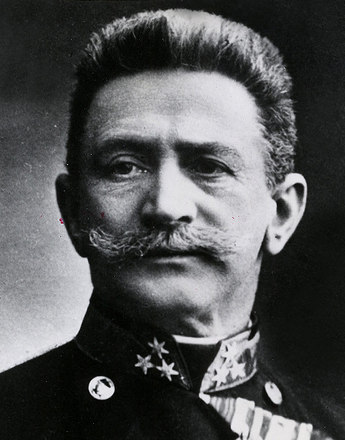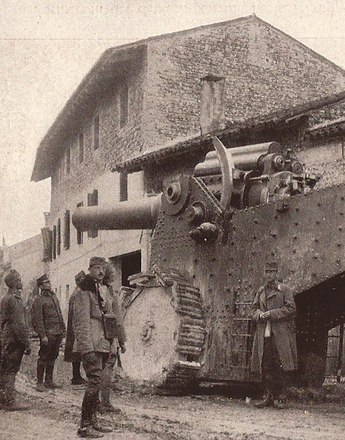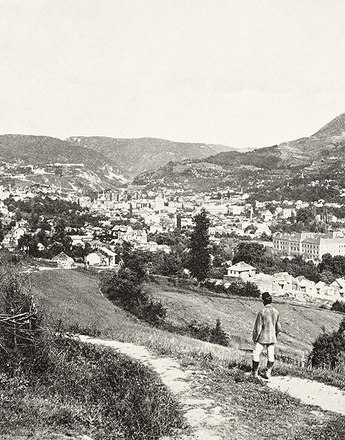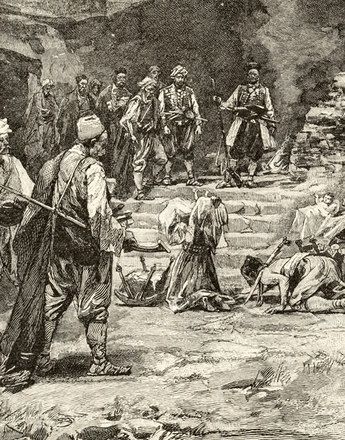In the opinion of Rudolf Sieghart, the governor of one of the largest and most influential Viennese banks before 1914, the Boden-Credit-Anstalt, it was the folly of the erstwhile rulers that led directly into the war. The Boden-Credit-Anstalt was regarded as the bank that was particularly close to the Imperial house.
It might appear strange at first sight that the outbreak of the First World War found the ruling classes – the economic and political elites and (as far as concerns military strategy) the military leadership of the belligerent countries – in a certain sense badly prepared. There were practically no economic war plans going beyond the short term. This is all the more surprising in that the two Balkan Wars of 1912 and 1913 not only intensified the political tensions between Austria-Hungary and Serbia but also led to an increase in pan-Slav movements within the Empire and to an aggravation of ethnic conflicts in the Balkans themselves. In addition, the partial mobilisation set in motion by the wars led to a further burden on the Empire’s already strained public finances.
Even before the First Balkan War, the Turkish state had been weakened by the Young Turk revolution. Austria Hungary seized this opportunity to annex the Turkish province of Bosnia and Herzegovina, which it had occupied since 1878, setting off not only the annexation crisis, which placed the risk of an armed conflict between the European Great Powers on the agenda, but also provoking a radicalisation of nationalist forces in Serbia. It was in this connection that the organisation Ujedinenje ili smrt that was behind the Sarajevo assassination was founded in 1911.
The generals ignored the experiences of the 1904/05 Russo-Japanese War, which had demonstrated to the world the devastating consequences of the machine gun and the major strategic role played by logistics in a modern industrial war. Even less thought was given to the economic consequences of a war lasting years with hundreds of thousands of dead and wounded. The Polish railway entrepreneur and banker Jan Bloch had already pointed out the great changes to the future conduct of wars as early as 1899.
Many a high-ranking officer was longing for war. As early as 1908, Conrad von Hötzendorf was in favour of launching a preventive war against Serbia and annexing the country. There was no idea about the dimensions of the military and economic problems that Austria-Hungary would be faced with. The best that can be said about the generals is that they were naive and arrogant to an extent that surprised even a representative of high finance such as Rudolf Sieghart, the governor of the board of the Boden-Credit-Anstalt. “Up to the last moment,” he wrote in his memoirs, “I did not believe that war would happen. I could not imagine that Austria-Hungary, of all the great powers that with the weakest periphery, with an exposed situation on several fronts, with the magnetic attraction exercised by numerous nations beyond its borders on their co-nationals inside them, would plunge into so risky an adventure. I still do not understand the folly of the erstwhile rulers, and least of all their childish faith that Austria-Hungary would be dealing solely with Serbia.”
Translation: David Wright
Bloch, Johann: Der Krieg. Übersetzung des russischen Werkes des Autors. Der zukünftige Krieg in seiner technischen, volkswirtschaftlichen und politischen Bedeutung, 6 Bände, Berlin 1899
Clark, Christopher: Die Schlafwandler. Wie Europa in den Ersten Weltkrieg zog, München 2013
Janz, Oliver: Der Große Krieg, Frankfurt am Main 2013
Kann, Robert A. et al. (Hrsg.): The Habsburg Empire in World War I (East European Monographs, No. XXIII), New York 1977
Leonhard, Jörn: Die Büchse der Pandora: Geschichte des Ersten Weltkrieges, München 2014
Rauchensteiner, Manfried: Der Erste Weltkrieg und das Ende der Habsburgermonarchie, Wien/Köln/Weimar 2013
Sieghart, Rudolf: Die letzten Jahrzehnte einer Großmacht, Berlin 1932
Quotes:
"Up to the last moment …": Sieghart, Rudolf: Die letzten Jahrzehnte einer Großmacht, Berlin 1932, 168 (Translation)
-
Chapters
- The underlying causes of the First World War
- The folly of the erstwhile rulers
- Schumpeter’s imperialism theory: Did big business press for war?
- A state living beyond its means
- Problems of the war economy
- High mark and decline of the economic war effort
- Shifts in the production structure
- The change in the social balance of power in the course of the war







